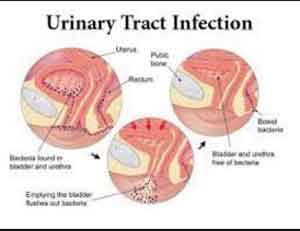- Home
- Editorial
- News
- Practice Guidelines
- Anesthesiology Guidelines
- Cancer Guidelines
- Cardiac Sciences Guidelines
- Critical Care Guidelines
- Dentistry Guidelines
- Dermatology Guidelines
- Diabetes and Endo Guidelines
- Diagnostics Guidelines
- ENT Guidelines
- Featured Practice Guidelines
- Gastroenterology Guidelines
- Geriatrics Guidelines
- Medicine Guidelines
- Nephrology Guidelines
- Neurosciences Guidelines
- Obs and Gynae Guidelines
- Ophthalmology Guidelines
- Orthopaedics Guidelines
- Paediatrics Guidelines
- Psychiatry Guidelines
- Pulmonology Guidelines
- Radiology Guidelines
- Surgery Guidelines
- Urology Guidelines
AI can detect possible urinary tract infection cases

A new study published in the journal PLOS ONE has reported that the scientists have developed a novel machine learning algorithms to identify early UTI symptoms that will help reduce one of the top causes of hospitalization for people living with dementia. The researchers then used a technique called Non-negative Matrix Factorisation to find hidden clues of possible UTI cases.
The experiment was part of the TIHM (Technology Integrated Health Management) for dementia project, led by Surrey and Borders Partnership NHS Foundation Trust and in partnership with the University of Surrey and industry collaborators.
The clinicians remotely monitored the health of people with dementia living at home, with the help of a network of internet-enabled devices such as environmental and activity monitoring sensors, and vital body signal monitoring devices. Data streamed from these devices was analyzed using machine learning solutions, and the identified health problems were flagged on a digital dashboard and followed up by a clinical monitoring team.
Read Also: Dementia symptoms worsen in winter and spring in Alzheimer’s Disease
Payam Barnaghi, Professor of Machine Intelligence at CVSSP, said: "Urinary tract infections are one of the most common reasons why people living with dementia go into hospital. We have developed a tool that is able to identify the risk of UTIs so it is then possible to treat them early. We are confident our algorithm will be a valuable tool for healthcare professionals, allowing them to produce more effective and personalized plans for patients."
Professor Adrian Hilton, Director of CVSSP, said: "This development hints at the incredible potential of Professor Barnaghi's research here at CVSSP. Machine learning could provide improved care for people living with dementia to remain at home, reducing hospitalization and helping the NHS to free up bed space."
Dr. Shirin Enshaeifar, the Senior Research Fellow at CVSSP, said: "I am delighted to see that the algorithms we have designed have an impact on improving the healthcare of people with dementia and providing a tool for clinicians to offer better support to their patients."
Read Also: New Sensor detects hidden urinary tract infection
“In this regard, we have introduced a systematic approach to provide more effective and preventative care for people with long-term conditions, and in particular for those with dementia who live in their own homes. We have focused on two key aspects of dementia care including early detection of Urinary Tract Infection (UTI) and identification of changes in daily activity patterns,” write the authors.
Dementia is a neurological and cognitive condition that affects millions of people around the world. According to The World Health Organisation, around 50 million people worldwide have dementia. This number is estimated to reach 82 million in 2030 and 152 million in 2050.
For full information log on to https://journals.plos.org/plosone/article?id=10.1371/journal.pone.0209909

Disclaimer: This site is primarily intended for healthcare professionals. Any content/information on this website does not replace the advice of medical and/or health professionals and should not be construed as medical/diagnostic advice/endorsement or prescription. Use of this site is subject to our terms of use, privacy policy, advertisement policy. © 2020 Minerva Medical Treatment Pvt Ltd